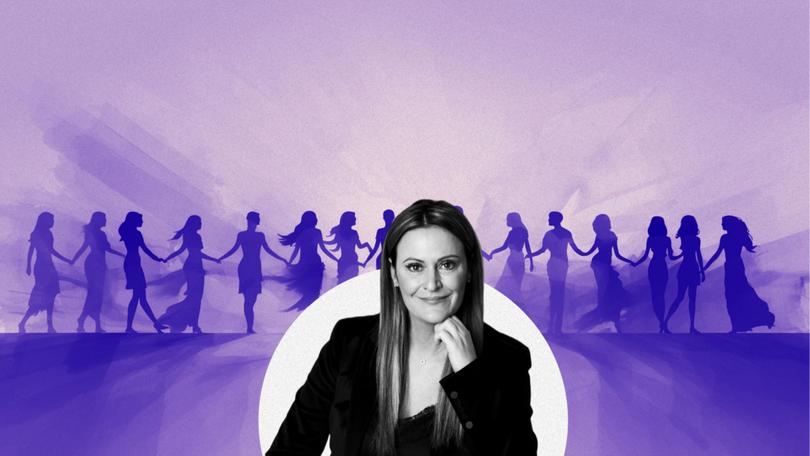DONNA STAMBULICH: What will it take to create a world where women feel safe?
DONNA STAMBULICH: At the moment, the world does not feel like a safe place for women.

At the moment, the world does not feel like a safe place for women.
And after last weekend’s horrific Bondi Junction attacks, women are now also reviewing the places in Australia where we used to feel safe, and shopping centres were one of them. Filled with people and families, we assumed that they were a safe haven. We were wrong.
We’re now asking ourselves, where does it end? And how can we navigate living our lives without being petrified about what might happen to us out in the world?
Sign up to The Nightly's newsletters.
Get the first look at the digital newspaper, curated daily stories and breaking headlines delivered to your inbox.
By continuing you agree to our Terms and Privacy Policy.The flow-on effect I have seen in my female patients this week is increased levels of anxiety, which is not just a cry for help; it is also a demand for change, for a world where we can move freely without fear, where our voices are heard, and our rights are respected.
And, sadly I believe that every woman I know has felt unsafe at some point in her life. Fear of being attacked is something women have always lived with.
From shopping centres to going for a run alone, to the terrifying reality of domestic violence at home, women are grappling with a pervasive sense of vulnerability that is both distressing and unacceptable.
The recent surge in reports of violence against women has amplified this issue, shining a dark light on the prevalence of harassment, assault, and abuse that far too many women experience on a regular basis. These incidents not only shatter the lives of the victims, they also cast a shadow of fear and doubt over every woman who wonders if she could be next.
The issue of women feeling unsafe in society is multifaceted, rooted in deep-seated societal norms, gender stereotypes, and systemic inequalities. It is a reflection of power dynamics that perpetuate a culture of silence and victim-blaming, making it difficult for women to speak out and seek justice without facing backlash and scepticism.
The lack of adequate support systems and resources for survivors of violence further exacerbates this problem, leaving many women feeling isolated, helpless, and unprotected. The stigma surrounding domestic violence, in particular, often prevents women from seeking help or reporting abuse, trapping them in a cycle of fear and trauma.
In the face of these challenges, women are coming together to reclaim their sense of agency and demand change. Through grassroots movements, social media campaigns, and advocacy efforts, women are raising awareness about the pervasive issue of gender-based violence and calling for immediate action to address it.
One crucial aspect of empowering women to feel safe in the world is to shift the focus from victim-blaming to holding perpetrators accountable for their actions. This requires a comprehensive approach that involves legal reforms, improved law enforcement practices, and a culture of zero tolerance for violence against women.
Education also plays a key role in changing attitudes and behaviours towards women. By promoting gender equality, consent education, and respectful relationships from a young age, we can help prevent the perpetuation of harmful stereotypes and behaviours that contribute to women feeling unsafe in society.
Creating safe spaces for women, both physically and emotionally, is another important step towards ensuring their wellbeing. This includes investing in public infrastructure that prioritises women’s safety, providing access to support services for survivors of violence, and fostering a culture of solidarity and support among not only women but all humans.
Ultimately, the question of how women can feel safe in the world after all of this requires a collective effort from society as a whole. It is not enough to simply acknowledge the issue; we must actively work towards dismantling the structures of oppression and inequality that perpetuate violence against women.
Women have the right to feel safe, respected, and empowered. It is our collective responsibility to create a society where women can live their lives without fear, where their voices are valued, and where their rights are protected.
The time for change is now, and it starts with each and every one of us standing together in solidarity with women everywhere.
Until then, women will remain anxious about the state of the world, and I don’t blame them, because I am one of them.
Donna Stambulich is a clinical psychologist.
